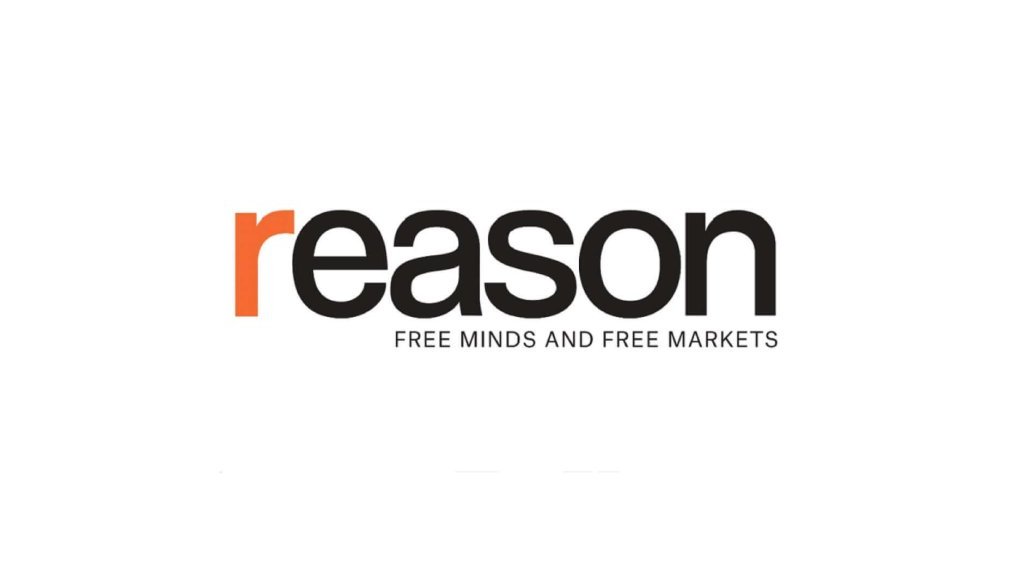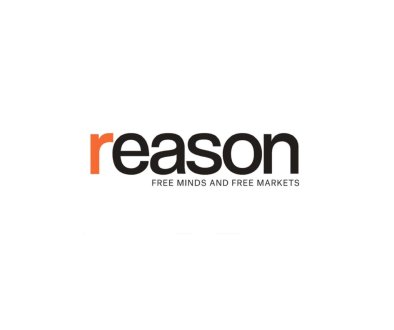Scott Barry Kaufman: Incels, Narcissists, and the Victim Mindset
Psychologist and author Scott Barry Kaufman joins Reason‘s Nick Gillespie to discuss his new book Rise Above, which challenges the growing embrace of victimhood as identity. They explore how traits such as neuroticism and vulnerable narcissism are shaping modern culture, why social media rewards grievance over growth, and what it really takes to develop a more flexible, empowered sense of self. Kaufman reflects on his own journey from special education to Carnegie Mellon and beyond, explains why tough love and radical honesty are essential tools for transformation, and offers a humanistic vision of how individuals and societies can move beyond resentment and reclaim purpose.
0:00—Introduction
1:30—Limiting beliefs come from our past.
6:00—The victim mindset
10:49—What is vulnerable narcissism?
12:12—Kaufman’s experience in special education
17:35—Childhood trauma from summer camp
21:49—Narcissism is a defensive posture.
26:24—Kaufman’s unconventional path to Carnegie Mellon
31:09—Group victimhood and empowerment
37:40—Why coddling and tough love are both wrong
41:55—Embracing optimism in the face of darkness
48:00—Developing a flexible identity
Upcoming events:
- Reason Versus debate: Jacob Sullum and Billy Binion vs. Charles Fain Lehman and Rafael Mangual, June 24
- Reason Speakeasy: Nick Gillespie and Elizabeth Nolan Brown on the MAHA Movement, June 25
- The Reason Roundtable Live in New York City, July 15
Today’s sponsors:
- Reliance College: What if one day could change how you think—how you lead—and how you shape your future? Join Reliance College for Reliance Day—Saturday, June 28 in Los Angeles! This one-day, high-impact experience is designed for students, professionals, and lifelong learners ready to level up their thinking in an AI-driven world. At Reliance Day, you’ll dive into collaborative Socratic discussions and sharpen the critical thinking and leadership skills that drive success in college, business, and life. It’s a full day of intellectual challenge and creative exploration—rooted in the Great Books and Montessori-inspired methods that have transformed over 400 lives. Go to RelianceCollege.org/reliancedays to register today.
- Future of Freedom: If you’re tired of cable news debates and Twitter shouting matches and you’re looking for serious, good-faith conversations between people who actually care about liberty, then it’s time to check out the Future of Freedom podcast. Each episode dives deep into a single topic—tariffs, campus speech, the Department of Government Efficiency—and brings together two guests who disagree on the best path forward. But here’s the twist: This isn’t a debate show. No interrupting. No dunking. If you believe the future of freedom depends on more than just winning arguments and you’re ready for something deeper than the usual echo chambers, check out the Future of Freedom podcast. Real disagreement. Real ideas. Real conversations. Subscribe to Future of Freedom wherever you get your podcasts.
______________________________________________________________________________
Transcript
This is an AI-generated, AI-edited transcript. Check all quotes against the audio for accuracy.
Nick Gillespie: Kaufman has entered the building. Thanks so much. I’m Nick Gillespie, I’m an editor at Reason, and Scott graciously asked me to interview him about his new book, Rise Above: Overcome a Victim Mindset, Empower Yourself, and Realize Your Full Potential. Let’s have a big hand for Scott Barry Kaufman.
Scott Kaufman: Thank you.
Scott, I think as we talk—and we’re going to talk for about 45 minutes—and then we’ll have plenty of time for audience Q&A. I’ll let you know when to line up, but there’s a microphone over on that side of the restaurant, and you can queue up. You’ll have plenty of warning about that. But as we talk, your backstory will also come out. This will be crafted like a mystery movie. But I want to start with Rise Above. You have an epigraph at the beginning, which is from Carl Jung, and it says, “I am not what happened to me. I am what I choose to become.”
I love that quote.
Yeah, talk a little bit about why that’s at the start of this book.
Yeah, I think that we have a lot of limiting beliefs about our potential and what we’re capable of, based on the stories we tell ourselves about our past and what we’ve been through. And a lot of the stories that we tell ourselves about our past are limiting stories. They keep us enshrined in our past. Another quote I really like, which relates to that, is from the great existential psychotherapist Irvin Yalom, who said, “Sooner or later you have to give up all hope for a better past.” That basically encapsulates the point of my book.
Why are we drawn to—why would we believe in something that limits us rather than something that empowers us?
Yeah, are any psychoanalysts—any psychoanalysts in the room? People into that? Karen Horney talked about soothing illusions. She was actually the first one to really challenge Freud. And she’s like, “Freud, you’re batshit crazy.” Yeah, she was the first to call it out, you know, before cancel culture.
She called out Freud.
She says we have a lot of defense mechanisms that serve for us feel—or attempt to feel—safe and secure. It takes a lot sometimes to rip our defense mechanisms off of us, because it’s a very vulnerable space to do so. To admit that, “Wow, I have really not gotten over this thing,” or “Wow, I really don’t think I can cope.” To admit to yourself, “I don’t think I can do this.” It’s far easier for a lot of people to never, ever face that thought and hold on to these soothing illusions.
Wow. And even if the illusion keeps you in a bad place.
Oh, absolutely. In fact, I would say that’s our default state. I talk in this book about the theory of learned helplessness. It’s a theory that Martin Seligman and his colleagues developed—they shocked dogs and then eventually started shocking humans.
Another illustrious chapter in the University of Pennsylvania’s history. You know, every once in a while they win the Ivy League football championship, but in between that, they’re shocking. They’re known for shocking.
Yeah, Martin Seligman moved on to humans at some point. He got bored with dogs. But what was really interesting about this research is that after a certain number of shocks, they would open up a cage—they would keep a dog in a cage—they would open the cage and the dog could just leave whenever it wanted to. It was free. But it had been shocked so many times that it did not realize it was free. And even if it realized it was free, it didn’t leave.
What they found is that, 50 years later, in humans, it operates differently than with dogs. Because of our consciousness, learned helplessness is actually our default state. What we have to learn is hope. Learned hopefulness is what has to be learned.
So let’s talk about the victim mindset because, you know, that’s what this book is about. It’s overcoming a victim mindset. That’s a big part of it. What goes into creating that victim mindset, and are we at a surging moment of a victim mindset?
Oh, yes. Can I—on the second question, yes. A victim mindset is when you believe that—you sort of outsource all of your problems to the external world. Maybe it’s an individual, or maybe you’re saying a group is holding you back. You don’t take responsibility for your reactions to the world. Because maybe trauma—you use the word “trauma”—and so you say that excuses you from how you show up or how you act in the world. And this is the most important part: You don’t productively and constructively create a better future for yourself and come up with a plan to help you overcome the past. You stay enshrined in that past for as long as possible, without any sort of hope.
Why do you believe that, or what’s the evidence that we are in a big surge of a victim mindset? Where does that come from?
Yeah, so Jean Twenge has done some really cool analyses in her book Generations, looking at the past three or four generations. And what you see is, there was a self-esteem movement in the ’80s—anyone remember Stuart Smalley? Is that his name? Like, “I’m smart enough, doggone it, people like me,” or something?
Yeah, that was the Al Franken character on Saturday Night Live.
I’m not going to be here at the Comedy Cellar doing a Smalley impression. But yeah, there was a self-esteem movement, which morphed into a grandiose narcissism movement. So the generation after that they thought, “Well, we’re the best, we’re superior, we are entitled to things because we’re great.” But that’s not what it morphed into. That actually morphed into something very interesting, which is a vulnerable narcissism movement. So now we have a generation being raised feeling as though they’re entitled to special privileges not because they’re great but just because of their fragility.
I hate to center everything around the baby boom because, you know, enough with the baby already—but is it? The baby boom was kind of, and I know Twenge talks about this and other people, but the baby boom was the first generation that got raised after World War II in a land of plenty where things really opened up in a profound way for all sorts of people: women being treated more equally with men, Blacks, Asians, minorities kind of being more accepted. And they revolted against their parents—their parents who had survived the Depression, won World War II, and given them all of this. And then they were like, “We’re not going to be like you.” But now it’s the baby boomers who raised kids with this kind of false self-esteem. Is that kind of accurate?
Perhaps. Perhaps. There is a genetic component here, so we can’t just strictly talk about environmental impact. We also have to recognize that, for instance—I talk about the personality trait neuroticism. Neuroticism is, interestingly enough, very strongly correlated with vulnerable narcissism. A lot of people might not think of neuroticists as—
Can you define neuroticism the way that you’re using it?
Yeah, it’s a personality trait—part of the Big Five. So we have conscientiousness, agreeableness, extraversion, openness to new experiences. And then neuroticism is a particular personality trait where if you score high in neuroticism, you tend to ruminate a lot, you tend to be very anxious, you tend to have a lot of negative emotions and a lot of negative thoughts constantly. Your brain is pumping you full of negative thoughts.
Genes do play a role in that—in the development of a cognition that constantly is feeding you these kinds of thoughts and things. I think the environment then can amplify neuroticism. And interestingly enough, I think we have an environment that’s not only amplifying it, but rewarding it…neuroticism.
Explain that.
Welcome to social media.
I think that you get a lot more attention within our tribal sort of universe that we live in by complaining, by ruminating, by all these cognitive distortions that Jonathan Haidt talks about and Greg Lukianoff talks about in their book The Coddling of the American Mind. You see a lot of these cognitive distortions on the rise, which are correlated with the trait neuroticism.
Explain “vulnerable narcissism” as a term. This is not the first time that you’re using it, but it’s a big part of this book. What is vulnerable narcissism, and where does that come from?
Like everything, it’s a mix of nature and nurture. But as I was saying earlier, it is a form of entitlement based on past suffering. So you feel like, “I’ve suffered more than everyone else.” It would be, for example, you’re at Starbucks and there’s a huge line and you’re like, “Oh wow, I really should be the first one in line. I probably suffered more than everyone else in this line.” There is a scale, and one of the items on the scale—my favorite item—is: “If I was on the Titanic when it was going down, I should get the first life raft because of all I’ve suffered.”
Where did you come in on that scale?
After, you know, like now? That’s actually been an interesting journey for me. I think I used to be pretty high in vulnerable narcissism. When I was really young and put in special education, and everyone thought I was stupid—I’m sure you’re going to ask me about that.
Yeah, well, why don’t we start with that? We’ll unspool all of this social science on an autobiography…
This side doesn’t get to see me at all. Hi!
Part of what you’re talking about in this book is overcoming a victim mindset and empowering yourself. You have a kind of great story to tell where you—I think it’s a—
You think it’s a great story?
Yeah, I think it’s an interesting story. Why don’t I put it that way?
It was traumatic.
Well, you know, I was being nice to you because we’re sitting in the same room. But it could be great—or I’m rolling my eyes.
Kind of fucks me up, dude.
I mean, let’s put it this way. You have a wonderful academic pedigree. You have a very successful psychology podcast. You’re writing books on a regular basis, so you’re doing something right. But you started out—you were kind of the slow kid. How did that happen, and how did you get out of that?
Yeah, for the first three or four years of my life, my head was zipped up in a cloud.
I had a central auditory processing disorder, which meant it took an extra couple of seconds for me to process things in real time.
And yeah, everyone definitely thought I was stupid. Like, I was bullied almost daily—and by the way, I still follow those bullies on Facebook to see what they’re up to. But that’s an aside. But yeah, I was bullied a lot.
Are you doing better than they are?
Oh, I’m doing much better than they are.
And you let them know that, right?
No comment. I’m on stealth mode, yeah. I’m all like, “Hey, it’s Scotty. Remember me?” No, I don’t want to intersect with their lives. But what the hell was I talking about? Okay—so, everyone thought I was stupid.
I’ll remind you, because maybe you’re not fully over the special ed thing. But you were talking about special ed.
I sometimes do have my special moments, it’s true. And you know, I was just—no one expected anything of me. I mean, it gets you to a certain state of absurdity where you start to just feel like, “Well, then what’s the point of anything?” You know? I was kept in there until ninth grade. And I remember there was this day in ninth grade where—it was humiliating—they would remove you from the mainstream classroom to take a special untimed test. And here’s the thing: I’ve always been the kind of person who didn’t want the crutches. See, what was bothering me is that they kept giving me all these crutches that I didn’t even want because I f
Article from Reason.com

The Reason Magazine website is a go-to destination for libertarians seeking cogent analysis, investigative reporting, and thought-provoking commentary. Championing the principles of individual freedom, limited government, and free markets, the site offers a diverse range of articles, videos, and podcasts that challenge conventional wisdom and advocate for libertarian solutions. Whether you’re interested in politics, culture, or technology, Reason provides a unique lens that prioritizes liberty and rational discourse. It’s an essential resource for those who value critical thinking and nuanced debate in the pursuit of a freer society.




